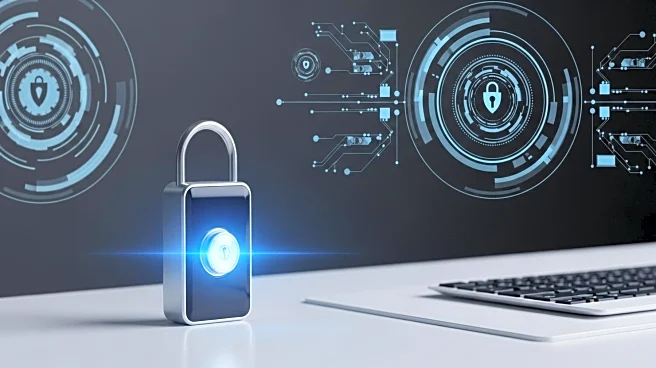What is the story about?
What's Happening?
In 2025, cyber hygiene has become as crucial as physical hygiene, with digital self-care practices being essential for maintaining online safety. The article emphasizes the importance of simple habits such as using strong passwords, enabling two-factor authentication, regularly updating software, and backing up data to prevent major digital risks. As digital interactions increasingly permeate daily life, these practices are likened to brushing teeth or taking vitamins, serving as preventive measures against cyber threats. The article highlights the growing sophistication of cybercrime, which is projected to cost over $10 trillion annually by 2025, and underscores the need for consistent digital self-care to mitigate these risks.
Why It's Important?
The significance of cyber hygiene in 2025 lies in its ability to protect individuals and organizations from escalating cyber threats. As personal and professional activities become more intertwined with digital platforms, the potential for data breaches and privacy erosion increases. By adopting robust cyber hygiene practices, users can safeguard their personal information and reduce vulnerability to cybercrime. This proactive approach not only enhances individual security but also contributes to a safer digital ecosystem, benefiting society at large. The emphasis on digital self-care reflects a shift towards prioritizing online safety as a fundamental aspect of modern life.
What's Next?
Looking ahead, the adoption of cyber hygiene practices is expected to become more widespread as awareness of digital risks grows. Organizations may implement stricter cybersecurity protocols, and individuals might increasingly rely on tools like password managers and biometric logins to enhance security. The integration of automatic updates and regular data backups will likely become standard practice, further fortifying digital defenses. As cyber threats evolve, continuous education and adaptation will be crucial for maintaining effective cyber hygiene. Stakeholders, including tech companies and policymakers, may collaborate to promote best practices and develop innovative solutions to address emerging challenges.
Beyond the Headlines
Beyond immediate security concerns, the emphasis on cyber hygiene in 2025 may lead to broader cultural shifts in how digital interactions are perceived and managed. The practice of digital self-care could foster a more mindful approach to technology use, encouraging individuals to make intentional choices about their online presence and data sharing. This cultural shift may also influence ethical considerations in technology development, prompting companies to prioritize user privacy and security in their products. As digital self-care becomes ingrained in daily routines, it may contribute to a more resilient and secure digital landscape, enhancing trust and collaboration across digital platforms.


















